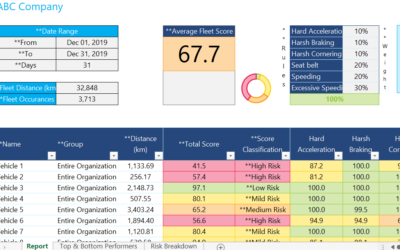Top Myths About Diesel Engines
When it comes to diesel engines, there is more to it than meets the eye. Many people, including fleet owners themselves, make-up things about diesel which are nothing more than myths. From the upgrading of tech to the impact on the exhaust of your vehicles after treatment, here are the top three myths out there about diesel. The busting of all these myths has been a long time coming and we will make things right so you have your facts straight about diesel.
1. Diesel Engines Haven’t Changed in 5 Years
The first myth we’re going to address is that many people assume the engines are the same as they were 5 years ago. That is simply not the case. Over the past three decades, the technology behind diesel engines has changed by a drastic degree. The standards for fuels and engines are improving every year and the speed with which we’re making advancements has accelerated a lot in the last few years. A rig bought in 2018 will be more efficient and reliable than the one bought in 2013.
There has been constant work done to control emissions. Stricter regulations and guidelines are seeing to it that the engines are better in every respect but most importantly in how efficiently they use the fuel. It’s a fact that these engines have come a long way in just the past 5 years, let alone the past thirty.
2. After Treatment, the Fuel You Use has No Impact on the Exhaust
Another quite popular myth about diesel that fleet owners are concerned about is that they cannot do a lot about their exhaust after treatment is done. For once, there is good news to be had from a busted myth. If fleet managers use high quality or premium fuel for their diesel engines after treatment, they will find that the emissions are going to be significantly lower than what they might have been expecting.
After treatment is done, the gas circulation valve in the exhaust, the selective catalytic reducer and the diesel particulate filter work in tandem to clean up the exhaust fumes. One of the main ways to effectively minimize the exhaust emissions is through making combustion of fuel as clean as possible. With high quality fuel involved, the diesel engine has to process less particulate in the filter. Good detergent packages also allow the engine to remain clean for longer periods of time.
3. Diesel Engines and Gasoline Engines Have the Same Performance at High Altitudes
An established fact about diesel is that it gives you better mileage compared gasoline. The same thing comes into play when you are considering the mileage of diesel-powered vehicles at high altitudes, compared to gasoline-powered vehicles. The air at higher altitudes is thinner which means the engines have to make up for it in order to keep combusting the fuel.
This is where the turbochargers for diesel engines come in. They pump the air into the combustion chamber in general running. When the vehicle is operating at high altitudes and the air is thinner, the turbochargers add more air to the combustion chamber in order to make the ideal mix of air and diesel for the best combustion. Contrary to the turbochargers, gasoline engines make use of fuel injectors to compensate for the thin air. That means the fuel air mixture in gasoline engines is not fixed making the gasoline engines work harder than the diesel engines. Thus, gasoline engines give you less mileage.
The diesel fuel itself, as well as the engines are constantly improving. This means more myths will come up and they will have to be put to rest. Until more arise, we hope that busting these three myths was helpful for you.
Source:
https://www.fleetowner.com/fuel/busted-3-myths-you-might-believe-about-diesel






